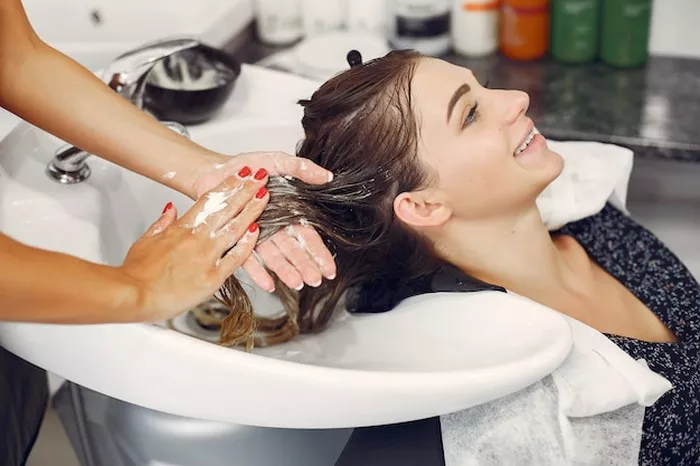An itchy scalp can be a bothersome and uncomfortable condition, causing irritation and often leading to embarrassment. Fortunately, there are numerous scalp treatments available in 2024 to address this issue and provide much-needed relief. In this comprehensive guide, we will explore the best scalp treatments for an itchy scalp, ranging from home remedies to advanced medical solutions.
Understanding the Causes of Itchy Scalp:
Before delving into the various treatments available, it’s essential to understand the potential causes of an itchy scalp. Several factors can contribute to this condition, including:
1. Dry Scalp: A lack of moisture in the scalp can lead to dryness and itchiness.
2. Dandruff: A common scalp condition characterized by flaky skin and itchiness, often caused by the overgrowth of a fungus called Malassezia.
3. Seborrheic Dermatitis: A more severe form of dandruff that results in red, inflamed skin and persistent itching.
4. Psoriasis: An autoimmune condition that can affect the scalp, causing thick, red patches of skin accompanied by itching.
5. Allergies: Sensitivity to certain hair care products, environmental allergens, or food allergies can trigger scalp itching.
6. Fungal Infections: Infections such as ringworm can affect the scalp, leading to itchiness and discomfort.
7. Stress: Emotional stress can exacerbate scalp conditions and contribute to itching.
Identifying the underlying cause of your itchy scalp is crucial for selecting the most effective treatment. In some cases, a combination of factors may be responsible, requiring a multifaceted approach to management.
Best Scalp Treatments for Itchy Scalp:
1. Medicated Shampoos:
Medicated shampoos containing active ingredients such as ketoconazole, selenium sulfide, or coal tar can effectively treat dandruff and seborrheic dermatitis. These ingredients help to reduce fungal growth, soothe inflammation, and alleviate itching. Popular brands include Nizoral, Head & Shoulders Clinical Strength, and Neutrogena T/Gel.
2. Natural Remedies:
For those seeking natural alternatives, several home remedies can provide relief from an itchy scalp. Tea tree oil, known for its antifungal and anti-inflammatory properties, can be diluted with a carrier oil and massaged into the scalp. Apple cider vinegar, with its acidic nature, can help restore the scalp’s pH balance and alleviate itching. Other options include coconut oil, aloe vera gel, and oatmeal baths.
3. Prescription Treatments:
In cases of severe scalp conditions such as psoriasis or stubborn dandruff, prescription treatments may be necessary. Topical corticosteroids can reduce inflammation and itching, while prescription-strength antifungal medications can target stubborn fungal infections. It’s essential to consult a dermatologist for proper diagnosis and treatment recommendations.
4. Scalp Exfoliation:
Regular scalp exfoliation can help remove dead skin cells and product buildup, reducing itching and promoting a healthier scalp environment. Exfoliating scrubs containing ingredients like salicylic acid or glycolic acid can effectively unclog pores and soothe irritation. However, it’s essential to avoid over-exfoliating, as this can further irritate the scalp.
5. Dietary Changes:
In some cases, dietary factors may contribute to scalp itching. Consuming a balanced diet rich in vitamins, minerals, and essential fatty acids can promote scalp health and reduce inflammation. Foods high in omega-3 fatty acids, such as salmon, flaxseeds, and walnuts, have anti-inflammatory properties that may benefit scalp conditions.
6. Stress Management:
Since stress can exacerbate scalp conditions, implementing stress-management techniques such as mindfulness, meditation, or yoga can help alleviate itching. Engaging in regular physical activity, getting adequate sleep, and seeking support from friends and family can also contribute to overall well-being and scalp health.
7. Avoiding Irritants:
Certain hair care products, such as shampoos, conditioners, and styling products, may contain harsh chemicals or fragrances that can irritate the scalp. Opting for gentle, fragrance-free formulations and avoiding overwashing can help prevent further irritation.
8. Professional Treatments:
For stubborn or chronic scalp conditions, dermatological treatments such as phototherapy (light therapy), steroid injections, or oral medications may be recommended. These treatments are typically reserved for severe cases that have not responded to other interventions and require close monitoring by a healthcare professional.
Conclusion:
An itchy scalp can be a source of discomfort and frustration, but with the right approach, relief is within reach. By understanding the underlying causes of scalp itching and implementing appropriate treatments, you can restore scalp health and enjoy lasting relief. Whether you opt for medicated shampoos, natural remedies, or prescription treatments, finding the best solution for your itchy scalp is essential for overall well-being and confidence. Don’t let an itchy scalp hold you back—take control of your scalp health and reclaim your comfort today.


